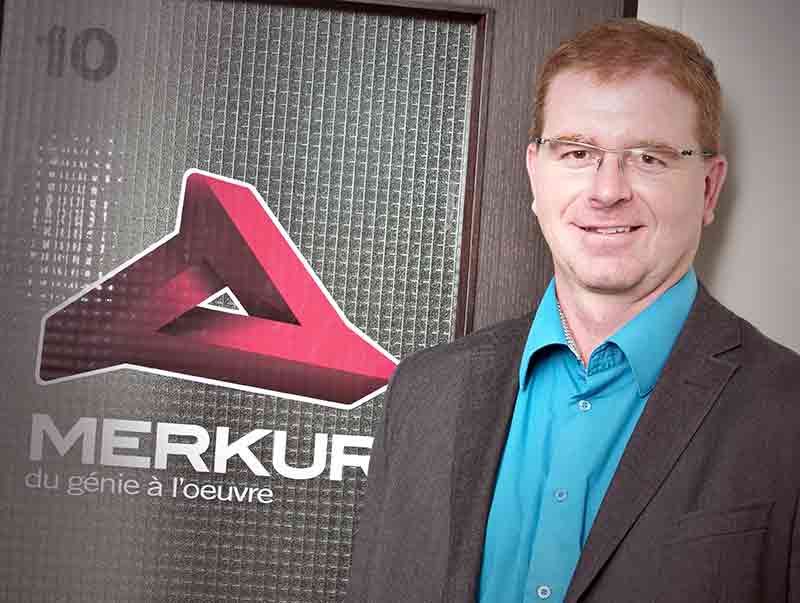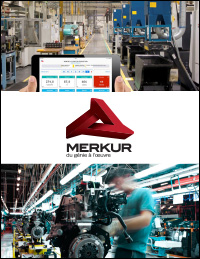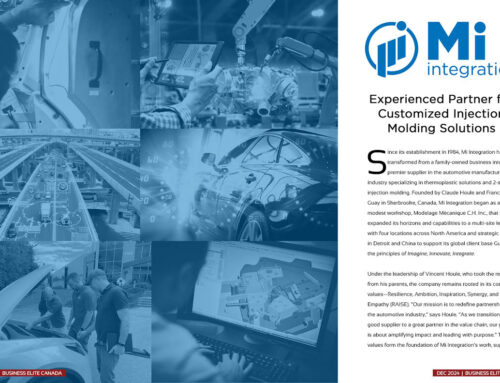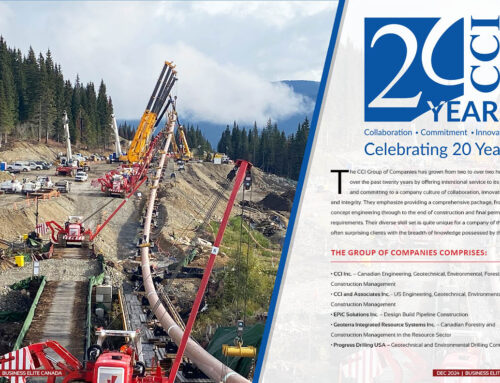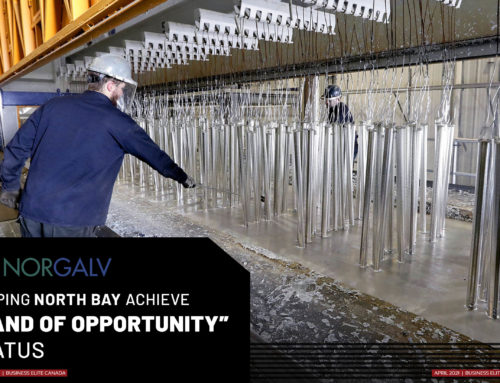Staying Competitive with the 5P Approach
By Cheryl Long
CEO Martin Dufour wasn’t afraid to jump in with both feet when he founded Merkur in early 1994. The Quebec-based consulting engineering firm launched its business with an impressive first client — Bombardier Recreational Products, a world leader in motorized recreational vehicles and powersports engines — and stepped in to offer mechanical engineering and project management services. Fast forward to 2016 and Merkur is now a leader in its own right, providing expertise in a variety of sectors, from transportation, manufacturing and industrial to the agri-food and aeronautics industries.
Today, Merkur works with clients located throughout Quebec and into the northeastern United States. The 85-employee company has a head office in Sherbrooke, another office just outside of Montreal and a manufacturing facility in Drummondville that was opened in 2015 to support Merkur’s acquisition of Khrome Product Transport, a systems integrator and manufacturer of components for the transit transportation sector. The vast majority of Merkur’s customers are found in the manufacturing industry, but all benefit from the company’s strong values: commitment, team spirit, entrepreneurship and innovation.
“We take a long-term approach with our customers. If a customer is counting on us to help him on a project, the first thing we do is ask: do you really need that project, do you really need those investments? If we are able to eliminate those investments for achieving the goal … it’s good for the customer,” Dufour explained.
Customized approach for each client
Integration is at the heart of what Merkur calls the 5P Approach, which means taking a comprehensive look at each client’s issues and then identifying projects that will be both strategic and profitable. There is no cookie cutter solution; each client receives a customized assessment designed to maximize the ‘5P’ areas: products, by innovating and integrating new technologies into product lines; productivity, by improving operational efficiencies and cutting costs; people, by enhancing the team’s potential; processes, by developing and maximizing manufacturing processes and assembly; and production, which is designed to optimize and transform production operations.
After those changes are implemented, Merkur stands by each customer in offering high level expertise whenever and wherever it’s needed. Whether it’s a problem on the production line, challenges in fine-tuning a business strategy or issues with the setup of new equipment, Merkur’s team thrives on identifying and providing solutions for any challenge. It’s also this philosophy that makes the forward-thinking company stand out among its peers.
“It’s the span of our services … we do work on process, production, productivity. By combining this approach, we have an offer that is different than our competitors,” Dufour said.
Connectivity is the newest wave
The manufacturing industry is continually evolving, and Merkur has had to be flexible to keep up with changes within the industry and their client base. From adopting the lean manufacturing approach in the 1990s to learning how to compete on an international playing field, Merkur has seen itself and its customers adapt as trends and innovation have forced companies to keep up with the times. Over the next 10 to 15 years, connectivity and new technologies like the Internet of Things will put the manufacturing industry to the test. Merkur is gearing up for the latest technological evolution with plans in place to double their volume by 2020.
“This will be a very big wave, bigger than what we have seen,” Dufour said. “Everybody will have to adapt the company to integrate those technologies to their manufacturing strategy. If not, the chance to survive will be very low.
“The biggest point will be that every piece of equipment, every robot, every tool will need to be connected to the web and be able to interact with other equipment inside your plant. The mobile approach to managing the plant will be really important. This will be a very big change.”
Strategic planning is key to growth
Setting aside time and resources to develop their own long-term business plans has helped Merkur stay competitive. Twice-yearly strategy planning sessions allow the team to challenge their own service offerings and look for new ways to embrace innovation along the path to the company’s continued growth. “Change generated by growth is more difficult to manage than changing the processes,” Dufour explained. “Change management will be very important for the next year, more than ever because that big new wave is coming.”
Dufour has ambitious plans for the company over the next decade. Taking a “think globally and act locally” approach, he has his sights set on continued expansion into the U.S. and substantial growth for Khrome Product Transport, Merkur’s sister company. The company is supported by a staff that is young but experienced and that combination bodes well for a strong future.
Along with his spot at the helm of Merkur, Dufour is also President of the board of directors for one of Quebec’s ground transportation organizations. The Quebec Ground Transportation Cluster, or Le Pôle d’excellence québécois en transport terrestre, works to create a unified hub for Quebec’s ground transportation sector by bringing together innovative companies focused on sustainable development.
To learn more about Merkur and the 5P approach, visit www.merkur.ca.

